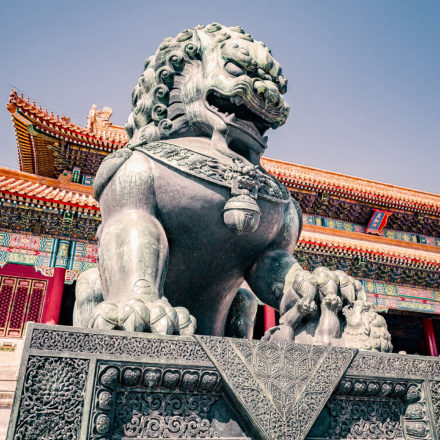Xiaoxia Zhang, an IP Partner in KWM’s Beijing office, introduces a view of the Chinese court on does Participating in the Drug Centralized Procurement Constitute Offering to Sell?
In February 2023, the Supreme People’s Court of PRC (hereinafter “SPC”) rendered a second-instance judgment, No. (2021) ZUI GAO FA ZHI MIN ZHONG 1158, reversing the first-instance judgment. SPC found that Jiangsu Hansoh Pharmaceutical Group Co., Ltd. (hereinafter “Hansoh Pharma”) engaged in the declaration activities in Guangzhou, Xiamen, Nanchang, Shanxi, and Qinghai, during the drug procurement process, infringing the patent No. 99814202.6 titled “N-substituted 2-cyanopyrrolidines compound” (hereinafter the patent in suit). As per the law, Hansoh Pharma was ordered to stop infringement and compensate Sandoz Company for its reasonable cost with RMB 300,000 yuan.
The SPC holds that:
- Firstly, regarding the nature of an offer-to-sell act:
According to Paragraph 1, Article 11 of the Patent Law of PRC, offering to sell is an independent form of infringement which has been explicitly stipulated in the patent law.
- Secondly, regarding the connotation of an offer-to-sell act:
The acts of offering to sell show openness, diversity, and flexibility.
The SPC once clarified in the civil judgment, No. (2020) ZUI GAO FA ZHI MIN ZHONG 1658, that “an offer-to-sell act may occur earlier than the completion of product manufacturing, and may occur later than that; and may occur before the product’s actual sale or during the sales process. Although the purpose of offering to sell is directed to promote the sale act, it constitutes a statutory and independent form of infringement.”
The SPC further clarified in the administrative judgments, No. (2021) ZUI GAO FA ZHI XING ZHONG 451 and No. (2021) ZUI GAO FA ZHI XING ZHONG 702, that “an offer-to-sell act can target both specific and nonspecific entities. Directing expressions indicating the intent to sell products towards specific entities may also constitute offering to sell. Offering to sell can be either an offer or an invitation for offer. When the content of expressing the intent to sell products is clear and specific, it can be considered as offering to sell. The absence of specific terms related to contract establishment such as price, supply quantity, and product batch numbers does not affect the determination of an offer-to-sell act.”
Therefore, the connotation of the offer-to-sell act stipulated in Article 11 of the Patent Law should be comprehended from both subjective and objective perspectives.
- Regarding the objective aspect of an offer-to-sell act
Specifically, it is not confined to the three instances listed as examples in the Several Provisions of the Supreme People’s Court on Issues concerning the Application of Law in the Trial of Cases on Patent Disputes: advertisement, display in shop windows, or exhibition at trade fairs. Any form of expression, whether verbal, written, through physical demonstrations, webpage displays, or in any other perceivable manner, aimed at preparing a product for circulation or commercialization, may be considered as an offer-to-sell act.
- Regarding the subjective aspect of an offer-to-sell act
It pertains to the intent of the infringer to sell products to either specific or nonspecific individuals.
For instance, during the period when brand-name drug patents are still valid, the act of generic pharmaceutical companies submitting corporate and drug qualification documents to local centralized drug procurement platforms shall be deemed as exhibiting an intention to sell, thereby constituting an offer-to-sell act.
- The declaration, on one hand, signifies a preparatory step towards the subsequent commercialization and entry into the market of related generic drugs;
- On the other hand, it signifies an explicit intent to supply these generic drugs to unspecified entities such as competitors, procurement departments organizing centralized drug procurement, or public healthcare institutions potentially interested in engaging in transactions.
Whether administrative approval is required after declaration, and whether the declared drugs can ultimately be successfully listed on the centralized drug procurement platform, have no substantive impact on the conclusion.
Based on the aforementioned grounds, SPC considers that the infringing acts committed by Hansoh Pharma in four locations including Guangzhou, Fujian, Shaanxi, and Qinghai, namely the submission of related declaration materials for the accused infringing products to participate in centralized drug procurement, constitute offering to sell as stipulated in Paragraph 1, Article 11 of the Patent Law.
Key takeaways
This case has been selected as a typical case by SPC in 2023. Its significance lies in the fact that SPC, for the first time, explicitly states that the act of generic pharmaceutical companies submitting corporate and drug qualification documents to relevant local drug procurement departments through local centralized drug procurement platforms during the patent protection period of the brand-name drugs constitutes offering to sell according to the patent law. According to the law, they should take the infringement liability.
This clarification further delineates the boundaries of acts by generic pharmaceutical companies in the field of centralized drug procurement, contributing positively to strengthening patent protection for innovative drugs, regulating the market order for centralized drug procurement, and promoting the high-quality development of the pharmaceutical industry.
If you would like to know more about the cases those are informing how businesses protect their IP in China, see Xiaoxia Zhang’s other posts:








